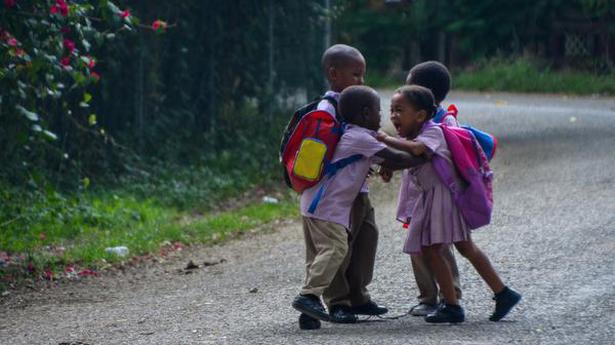MoreBack to News Headlines

Minimal intervention, maximum learning
The Hindu
Children could well learn more from their squabbles if adults reduce their intervention to a bare minimum
Do you remember what happened the last time you got into a fight as a youngster, either with your siblings, someone in your apartment or in the classroom? Chances are that an adult intervened, be it elders at your house or apartment, or a teacher, if you were at school. A by researchers at Hiroshima University in Japan, with participation from early childhood educators from both Japan and the U.S., however, suggests that this might not always be the best strategy to deal with the situation. Their findings, which have been published in the Early Childhood Education Journal, suggests that a hands-off approach when children fight might not only serve the purpose, but also create opportunities for autonomy and encourage ownership for solutions. The research, which was an attempt to explore and understand why Japanese early childhood educators do not intervene in such situations, offers a new possibility that can be implemented in other countries based on their cultural and regulatory requirements.More Related News

KTM has reinforced its middleweight ADV portfolio in India with the introduction of two distinct offerings — the updated KTM 390 Adventure X and the globally-spec KTM 390 Adventure Enduro R. While the former caters to long-distance touring enthusiasts now seeking more value and tech, the latter is purpose-built for riders who demand uncompromised off-road performance, rooted in Dakar DNA.





















 Run 3 Space | Play Space Running Game
Run 3 Space | Play Space Running Game Traffic Jam 3D | Online Racing Game
Traffic Jam 3D | Online Racing Game Duck Hunt | Play Old Classic Game
Duck Hunt | Play Old Classic Game










